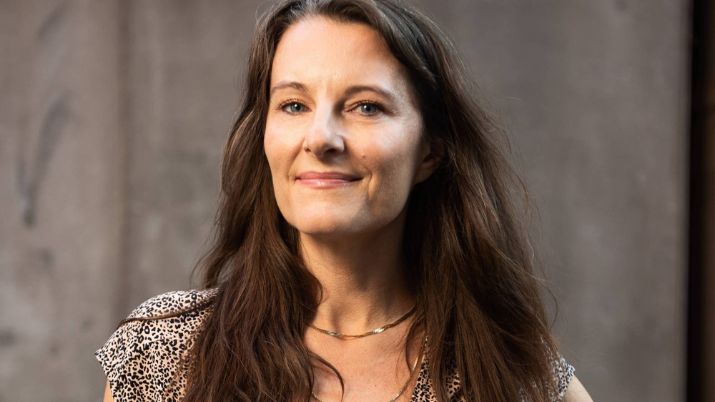The 4th Annual Tri-University Graduate Student Colloquium for Theatre and Performance Research: “Intersections and Interventions”, running April 28th 2018 at the University of Victoria (it rotates from year to year between UBC, Simon Fraser University and the University of Victoria) looks to the ways applied theatre can intersect and inform theory and practice while intervening in the areas of community development, social justice, and education.
Learn about PhD Candidates Katrina Dunn and Matthew Tompkinson and what they’ll be presenting:
Katrina Dunn (University of British Columbia)
Katrina’s scholarly work explores the spatial manifestations of theatre. She also researches ecocritical and eco-material theatre. She has twice been acknowledged by CATR’s Robert G. Lawrence Prize, and she co-won the Heather McCallum Award in 2017. Katrina’s career as a stage director and producer has had considerable impact on the performing arts in Vancouver.
https://theatrefilm.ubc.ca/persons/katrina-dunn/
Strange Noises of the Deep Earth: Lithic dramaturgy in Marie Clements’ Burning Vision
Through a close reading of Métis playwright Marie Clements’s 2002 opus Burning Vision this paper creates intersections between dramatic analysis and geology, looking at how the play’s structure troubles the linear framing of Anthropocene discourse. Clements’ work shows us fragments of the passage of uranium from its discovery in Sahtu Dene territory at Great Bear Lake Northwest Territories to its murderous arrival in Nagasaki and Hiroshima. An epic account of the effect of nuclear industrialization and weaponization on land, water, human and other-than-human communities, Burning Vision stares into uranium’s false sun to suggest radically dissoluble boundaries between time worlds at Humanity’s nuclear dawn. Clements’ intervention mines the agency of atomic stone as it moves effortlessly back and forth in time and projects itself in great arcs of mobility across the globe, collapsing time and space as never before in moments of unparalleled destruction, giving sickening testament to Jeffrey Jerome Cohen’s assertion that “lithic agency impels human knowing” (4). Rethinking both geologic and narrative conventions, the shards of Burning Vision cohere into a dramaturgy for the Anthropocene based in a new and beguiling logic of stone.
Works Cited
Clements, Marie. Burning Vision. Talonbooks, 2003.
Cohen, Jeffrey J. Stone: An Ecology of the Inhuman. University of Minnesota Press, 2015.
Matthew Tomkinson (University of British Columbia)
Matthew Tomkinson is a PhD student in Theatre Studies at the University of British Columbia. His research focuses on the intersections of disability studies, performance studies, and the health humanities. He is particularly interested in representations of invisible illness in performance.
Staging Anxiety in Rachel Aberle’s Still/Falling
Still/Falling (2016), written by Rachel Aberle, and produced by Green Thumb Theatre in Vancouver, will be touring Canadian high schools in the spring of 2018. The one-person show is about a teenager named Nina who struggles with anxiety and depression. According to promotional materials, it explores “the difference between ‘teen angst’ and mental illness.” This essay will look at the play’s role in local high school curriculum and its reception among youth audiences. I will also consider the play’s intertexts (the study guide, specifically) in order to ask how the mental health discourse therein is communicated to students.
https://theatrefilm.ubc.ca/persons/matthew-tompkinson/
https://triuniversitycolloquium.wordpress.com/participants/
The Tri-University Graduate Student Colloquium was formed in 2014 to offer vital professional development opportunities to graduate student scholars at UBC, UVIC and SFU working in the areas of theatre and performance studies. The initiative is entirely student-led, and its annual colloquium event in April/May rotates between the three universities. Its goals are to create scholarly conversation and build community, to offer skill-building opportunities in conference organization and presentation, and to generate structures that promote useful feedback and growth for graduate students.
The colloquium keynote speaker, University of Alberta Professor Jan Selman, has been recognized widely as a leader, creator and scholar in her field. Both her creation and research work focus on the use of theatre in community settings around community issues. Recent projects include an extended engagement with community-based artists in western Kenya. Recent directing work includes the premiere productions of Colleen Murphy’s I Hope My Heart Burns First and Story House by Tanzanian-Canadian writer/performer Tololwa Mollel. Research work in community-based theatre includes leading a Community-University Research Alliance (2006-13) of theatre and sexual health groups and researchers from across Canada. Her publications include Popular Theatre in Political Culture: Britain and Canada in Focus (Intellect) and an award-winning book which emerged from the SSHRC funded Are We There Yet? project (UA Press). A winner of the University of Alberta Leadership Award, Professor Selman is also a Fellow to the Royal Society of Canada and has been inducted into Edmonton’s Cultural Hall of Fame.
Professor Selman’s Keynote Speech will act as a focus point for the sharing of papers that explore dimensions of the colloquium theme, and the conference will feature presentations from students from all three universities in an atmosphere of exciting critical exchange. A lunch-time outdoor event will continue the colloquium’s Amble tradition, with participants walking to nearby Finnerty Gardens for embodied papers on sung poetry and walking ethnography.
For full colloquium information go to triuniversitycolloquium.wordpress.com


